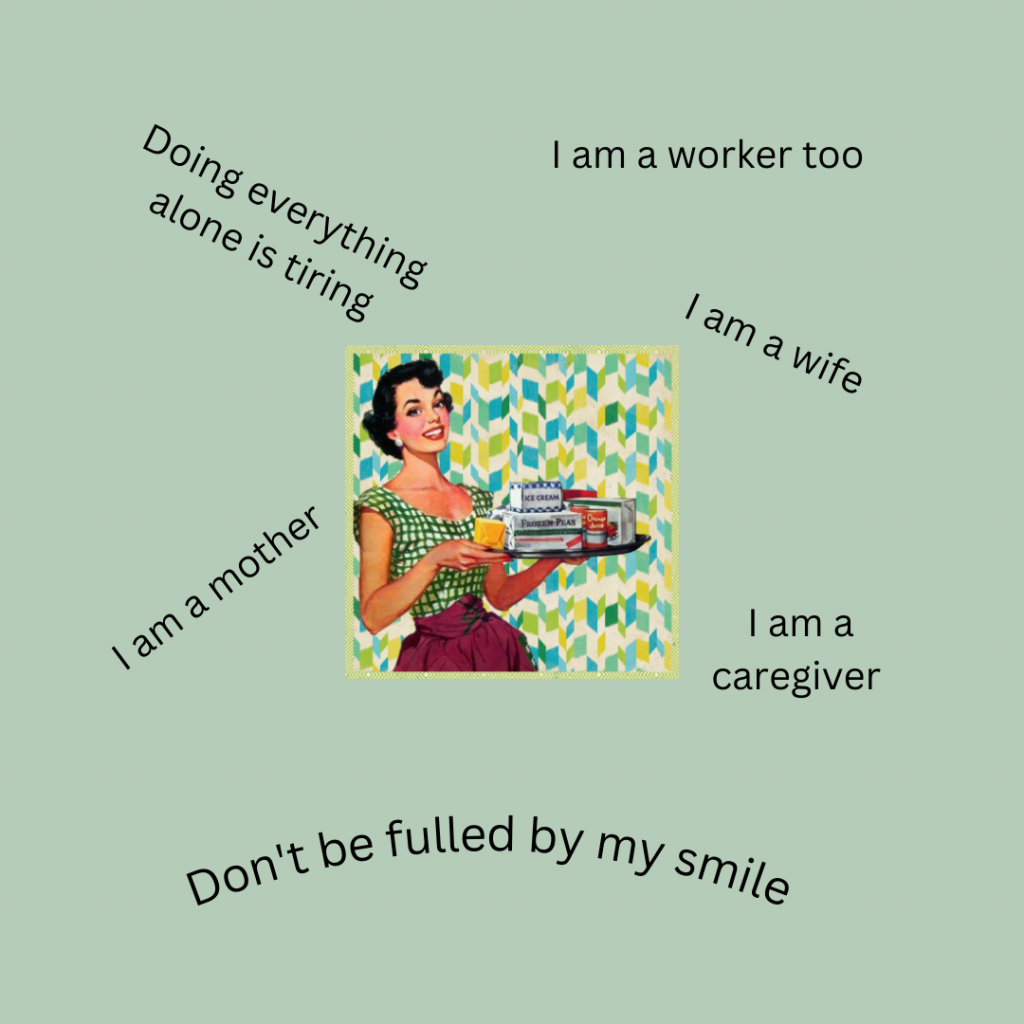Tag: resolution
The role of boundaries in the family
Boundaries exist in every relationship, and family dynamics are no exception. However, let’s think about the differences between maintaining healthy boundaries with strangers or acquaintances and navigating the complexities of familial relationships. The belief that family members should go above and beyond for each other can sometimes blur the lines, leading to unmet expectations and unnecessary conflicts.
Boundaries within a family can be broken for various reasons, stemming from complex dynamics and ingrained beliefs. Understanding these factors is crucial for fostering healthier relationships within the family unit. Here are some common reasons why boundaries may be broken within a family.
Unrealistic Expectations
The belief that family members should go above and beyond for each other can set unrealistic expectations. When individuals anticipate unwavering support without considering personal boundaries, it can lead to disappointment and conflict.
Entitlement
A sense of entitlement within a family can erode boundaries. When family members feel entitled to certain behaviors or actions from each other, it can create an environment where personal space and individual needs are overlooked.
Societal Expectations
Cultural or societal expectations may contribute to the breaking of boundaries within a family. Traditional beliefs about roles and responsibilities can lead individuals to feel obligated to meet certain expectations, even if it means sacrificing their personal boundaries.
Lack of Communication
Inadequate communication about individual needs and expectations can result in broken boundaries. When family members assume that others should intuitively understand their desires or limits, misunderstandings and conflicts can arise.
Family Roles and Dynamics
Established family roles and dynamics can sometimes undermine healthy boundaries. For example, the expectations placed on specific family members to always provide support or to prioritize the needs of others may lead to an imbalance and the breaking of personal boundaries.
Emotional Dependence
Emotional dependence on family members can lead to the breaking of boundaries. When individuals rely heavily on family for emotional support, it may create an environment where personal boundaries are compromised in the pursuit of meeting emotional needs.
Lack of Individual Identity
When family members struggle with forming their individual identities separate from the family unit, boundaries may be blurred. The desire to conform or please others can override the need for personal space and autonomy.
Unresolved Family Issues
Past conflicts or unresolved issues within the family can contribute to the breaking of boundaries. Lingering resentments or unaddressed concerns may manifest in behaviors that disregard the boundaries of others.
Misalignment of Values
Differences in values, beliefs, and priorities among family members can lead to clashes in expectations and boundaries. Without open communication and a willingness to understand diverse perspectives, boundaries may be unintentionally violated.
Generational Patterns
Family patterns and behaviors learned from previous generations can influence how individuals perceive and respect boundaries. Breaking generational patterns may require conscious efforts to establish healthier boundaries within the family.
Recognizing these reasons and fostering open communication within the family are essential steps toward maintaining and respecting boundaries. Building a culture of mutual understanding and acknowledging individual autonomy can contribute to stronger and more harmonious familial relationships.
The Role of Trust in the Family Dynamics
Trust is the cornerstone of any healthy and thriving relationship, and within family dynamics, its role is paramount. The level of trust within a family unit profoundly influences the quality of relationships, communication, and overall well-being. Let’s explore how trust plays a crucial role in family dynamics.
Open communication
Trust creates a foundation for open and honest communication within the family. When family members trust one another, they feel secure expressing their thoughts, feelings, and concerns without fear of judgment or repercussion. This open communication fosters understanding and helps prevent misunderstandings.⇒
Vulnerability and Support
Trust allows family members to be vulnerable with each other. It creates a safe space where individuals can share their insecurities, challenges, and dreams, knowing that they will be met with empathy and support. In a trusting family environment, vulnerability becomes a strength rather than a weakness. ⇒
Respect for Boundaries
Trust is closely linked to respecting personal boundaries within a family. When trust is present, family members are more likely to acknowledge and honor each other’s need for space, autonomy, and individuality. This mutual respect strengthens the overall fabric of the family. ⇒
Dependability and Reliability
Trust instills a sense of dependability and reliability within the family unit. Family members can count on each other to fulfill commitments, provide support during challenging times, and be consistent in their actions. This reliability creates a sense of security and stability. ⇒
Conflict Resolution
Trust is crucial for effective conflict resolution. In a trusting family, conflicts are approached with the belief that each member has the best interests of the family at heart. This belief fosters a collaborative problem-solving approach rather than an adversarial one. ⇒
Emotional Safety
Trust contributes to emotional safety within the family. Family members feel secure in expressing their emotions, knowing that they won’t be dismissed or invalidated. This emotional safety promotes a sense of belonging and encourages individuals to share their joys and sorrows without reservation. ⇒
Building Strong Bonds
Trust forms the foundation for building strong and enduring bonds within the family. As family members consistently demonstrate trustworthiness, the bonds of love, loyalty, and connection deepen. These bonds create a support system that withstands the tests of time. ⇒
Promoting Independence
In a trusting family environment, individuals are encouraged to pursue their goals and aspirations independently. Trust allows family members to believe in each other’s capabilities, fostering an atmosphere where personal growth and independence are celebrated rather than hindered. ⇒
Shared Values and Expectations
Trust is closely tied to shared values and expectations. When family members trust that everyone is working towards common goals and upholding shared values, it strengthens the family’s sense of purpose and unity. ⇒
Forgiveness and Resilience
Trust contributes to the family’s ability to forgive and bounce back from challenges. When trust is the foundation, family members are more likely to approach mistakes or conflicts with a willingness to forgive, learn, and grow together. ⇒
In essence, trust is the glue that holds family dynamics together. It creates an environment where love, understanding, and support can flourish, fostering a resilient and harmonious family unit. Nurturing trust requires ongoing effort, communication, and a shared commitment to building and maintaining strong connections within the family.
Marital conflict
Our Marital Conflict and Resolution Professionals are ready to help you with issues that may be impacting your relationship and interfering with your happiness.
Conflict in a marriage can arise from a multitude of factors, ranging from differences in values and expectations to communication breakdowns and unresolved emotional baggage. It can manifest in various ways, such as heated arguments, silent treatments, or passive-aggressive behaviors, often resulting in emotional distress, tension, and strain on the relationship. The underlying issues may include unmet needs, unresolved conflicts, and unexpressed emotions that can fester over time and create a rift between partners. If Marital Conflict is left unaddressed, marital conflict can have detrimental effects on the emotional well-being and stability of the relationship, highlighting the importance of effective communication, mutual respect, and willingness to work through challenges for a healthy and thriving marriage.
Reasons for marital conflict
There are many reasons why conflict can arise in a marriage. Here are some of the most common reasons for conflict in a marriage:
Communication problems
Poor communication is often at the root of conflicts in a marriage. If one or both partners are not effectively communicating their needs, feelings, and concerns, it can lead to misunderstandings and disagreements.


Differences in expectations
Each partner in a marriage may have different expectations about what their relationship should look like, how much time they should spend together, how they should handle finances, and so on. These differences can lead to conflict if they are not addressed and resolved.
Financial stress
Money is a common source of stress and conflict in a marriage. If one or both partners are struggling financially or have different attitudes toward money, it can lead to disagreements and tension.


Infidelity
Cheating or infidelity can cause a significant breach of trust in a marriage and can lead to feelings of anger, betrayal, and hurt.
Parenting disagreements
If partners have different ideas about how to raise their children, it can lead to disagreements about discipline, education, and other parenting issues.


Household responsibilities
Disagreements about household responsibilities, such as cleaning, cooking, and childcare, can lead to conflict if one partner feels overburdened or feels like the other is not doing their fair share.
Lack of intimacy
If one or both partners feel unsatisfied with the level of intimacy in their relationship, it can lead to feelings of resentment, frustration, and conflict.

These are just some of the many reasons why conflicts can arise in a marriage. It’s important to recognize that conflicts are a normal part of any relationship and that the key to resolving them is effective communication, compromise, and a willingness to work together toward a common goal
